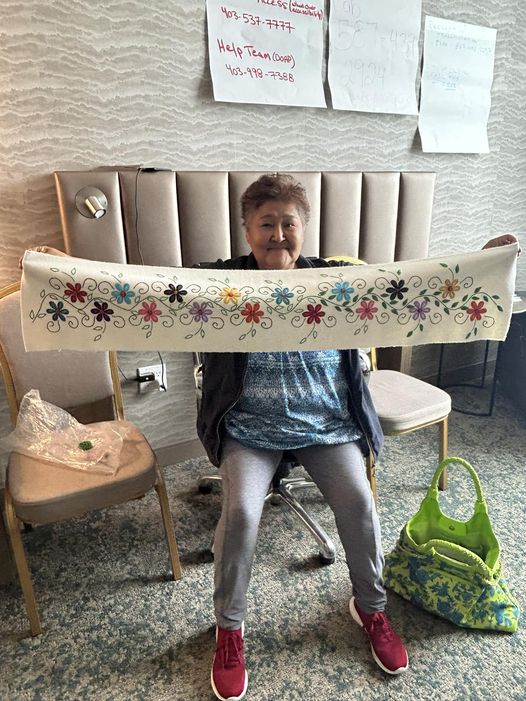His name is Abdel Karim Shalu. But Yellowknife residents affectionately refer to him as “Kumo.”

“Just my regular customers from the North,” Shalu said with a laugh.
That affection has spread to Calgary after he and his fellow residents were evacuated from the Northwest Territories. Shalu drove in his cab down and the rides didn’t stop when he arrived — he’s offering free service to evacuees, many of whom are staying near the airport.
“I know people get help from the community or government but some places are not covered, like going shopping or laundry,” he said. The bulk of his rides are to laundromats.
The fact Shalu does it without asking for gas money hasn’t gone unnoticed.
“Four or five times a day he’s downtown,” said evacuee Wanetwassen Ylema. “It’s not easy for people you know? We don’t have anything to pay for a taxi.”
Beyond being a kind gesture, it’s also proving to be emotionally beneficial for those who are displaced.
“Sixty-eight per cent of our population has been evacuated. Many of the people in the North have never left the North,” said N.W.T. Premier Caroline Cochrane. “They’re not familiar with big cities. I know it’s a struggle.”

Get breaking National news
And seeing a familiar face behind the wheel is a simple gesture that goes a long way.
“They are my people. We are a small community we’re all brothers and sisters,” Shalu said. “We are in a bad situation so we do our best.”
Inuit-style embroidery provides comfort to displaced
And making the best of a bad situation is exactly what Winnie Hatkaittuq is doing as well.
She works as a translator back home in Yellowknife, which was evacuated nearly two weeks ago, with her daughters, aged 18 and 20.
Hatkaittuq has turned her room at the Westin Airport Hotel in Calgary into a space to create, honoring her roots doing Inuit-style embroidery.
“I do this all the time,” Hatkaittuq says of the art she learned from her aunt when she was just 10 years old back in Gjoa Haven, Nunavut — her home community.
This isn’t the first time she’s been displaced. Five years ago she was airlifted from Gjoa Haven to Yellowknife and says after receiving medical care, was told she wasn’t being flown home. Her daughters eventually joined her and they’ve called Yellowknife home ever since.
“It’s OK. There was more opportunity for them in Yellowknife,” Hatkaittuq says. “I miss home but we adjusted to life in Yellowknife.”
She says evacuation coordinators told her they’d likely return to the Northwest Territories on or before Sept. 5.
“In a situation like this everyone is trying to do their best to accommodate everyone,” she says. “We’re safe, we have a hotel, we’re being fed.”
The Aboriginal Friendship Centre of Calgary is on-hand in hotels assisting evacuees, many of the 2,700 from NWT are First Nations, Inuit or Metis.










Comments